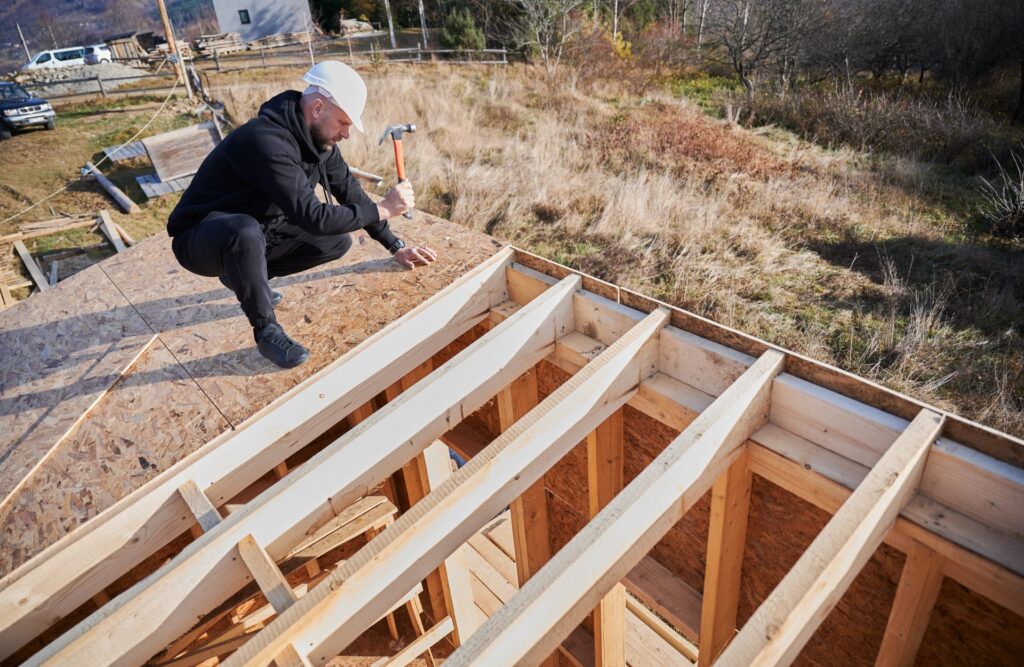Are You Falling for These Common Roofing Myths?
After a storm, many homeowners turn to roofing companies for repairs, but misinformation about insurance coverage, damage assessment, and repair costs can lead to costly mistakes.
Understanding what’s fact and what’s fiction when it comes to storm damage and roofing claims can help you make smarter decisions, avoid scams, and maximize your insurance coverage.
Key Takeaways:
-
The most common myths about storm damage and roofing
-
How to separate fact from fiction when dealing with insurance claims
-
What to do if your claim is denied or underpaid
-
How roofing companies and insurance lawyers can help you navigate the claims process
The Truth About Storm Damage Roofing Claims
After severe weather, homeowners may assume they’re fully covered for roof damage—but insurance policies and storm damage assessments are often more complex than they seem. Our clients have seen it all when it comes to roof damage, roofing companies, and denied roof claims. Let’s walk through some myths and facts together so that you are better prepared to tackle your next claim!
Common Roofing Myths Debunked
👀 Myth #1: If I Can’t See Damage, My Roof is Fine
➥ Fact: Hail and wind damage can be subtle but still compromise your roof’s integrity. Always schedule an inspection.
🛡️ Myth #2: Insurance Covers All Roof Repairs After a Storm
➥ Fact: Many policies have exclusions, high deductibles, and depreciation clauses that reduce payouts. There may be waivers, limits, or other items in your policy that prevent you from fully covering significant damages to your home and roof.
🚩 Myth #3: I Have to Use the Roofing Company My Insurance Recommends
➥ Fact: You have the right to choose your own roofing company—and doing so may help you get better service. HOWEVER, some insurance companies are starting to sneak in language into your policy that enforces the use of their recommended roofing companies which could impact the sustainability and integrity of your roof. Learn more on our YouTube channel.
💰 Myth #4: A New Roof Means Higher Premiums
➥ Fact: In many cases, replacing a damaged roof with impact-resistant materials can lower your insurance rates. Some clients have seen increased premiums and we encourage you to review if the increased price was due to your renewed policy or a change to your policy. Keep in mind that insurance companies are not allowed to retaliate (drop you or raise your policy) just because you file a claim- they can increase prices upon renewal and will do so due to the disasters happening across the nation.
What Homeowners Need to Know About Roofing Companies
Understanding how to approach storm damage claims can prevent financial losses and unnecessary stress. When you’re looking into roofing companies, it’s important to set yourself up for success with your insurance claim. Your roofer will know the extent of your damages (compared to a biased report from the insurance company’s adjuster) and can advocate for the damage estimate.
Keep in mind, roofers are not legally allowed to help you dispute your claim, but many roofers know expert insurance attorneys from Stormlex Law Group that are able to help you if the insurance company doesn’t cover your claim.
Steps to Take After a Storm
1️⃣ Inspect for Damage – Even if it’s not visible, get a professional assessment.
2️⃣ Document Everything – Take clear photos and note dates of the storm. Ask 1-3 local and reputable roofers for a repair estimate.
3️⃣ Review Your Insurance Policy – Understand your deductible and coverage limits.
4️⃣ File a Claim Promptly – Delayed claims can lead to denials.
5️⃣ Consult an Insurance Lawyer – If your claim is denied or underpaid, legal help can make a difference.
Common Mistakes to Avoid When Filing a Storm Damage Claim
Many homeowners unknowingly make errors that reduce their chances of getting full insurance coverage.
❌ Waiting Too Long to File a Claim – Most policies have strict deadlines.
❌ Accepting the First Offer – Insurance adjusters often provide low initial settlements.
❌ Hiring Unverified Roofing Companies – Avoid storm-chasing contractors who disappear after taking payments.
❌ Failing to Get a Second Opinion – A roofing contractor’s assessment may differ from the insurance adjuster’s report.
What’s Changing in Roofing and Insurance?
With rising severe weather events, both roofing companies and insurance providers are adapting their policies and practices.
Impact-Resistant Roofing Materials – More homeowners are investing in Class 4 shingles for better protection.
AI-Powered Damage Assessments – Insurers are using AI to detect storm damage more accurately.
Stricter Claim Approval Processes – Insurance companies are tightening rules on payouts, making it essential to document claims properly.
What Next? Protecting Your Home and Insurance Claim
-
Get an Inspection from a Trusted Roofing Company
-
Keep Detailed Records of All Roof Repairs and Maintenance
-
Understand Your Policy’s Limitations Before Storm Season
-
Consult an Insurance Attorney If You Face Claim Issues
-
Consider Upgrading to Hail-Resistant Roofing Materials
Make Informed Decisions About Roofing and Insurance
Don’t let roofing myths cost you money. Whether it’s understanding your policy, choosing the right roofing company, or fighting an unfair insurance claim decision, knowing the facts can protect your home and finances.
📌 Need a roofing inspection or help with a denied claim? Contact our expert legal team today to ensure you’re getting the coverage you deserve.
FAQs on Roofing Companies
Does homeowners insurance always cover roof damage from storms?
Not always—coverage depends on your policy, deductible, and exclusions.
How do I know if my roof has storm damage?
Get an inspection from a reputable roofing company—some damage is not visible from the ground.
Can an insurance lawyer help if my claim is denied?
Yes, an insurance lawyer can negotiate with your provider and even take legal action if necessary.
What’s the best way to prevent storm damage to my roof?
Regular maintenance and impact-resistant roofing materials can reduce damage risks.
How soon should I file an insurance claim after a storm?
Most policies require claims to be filed within a specific timeframe—usually within 6-12 months.

















